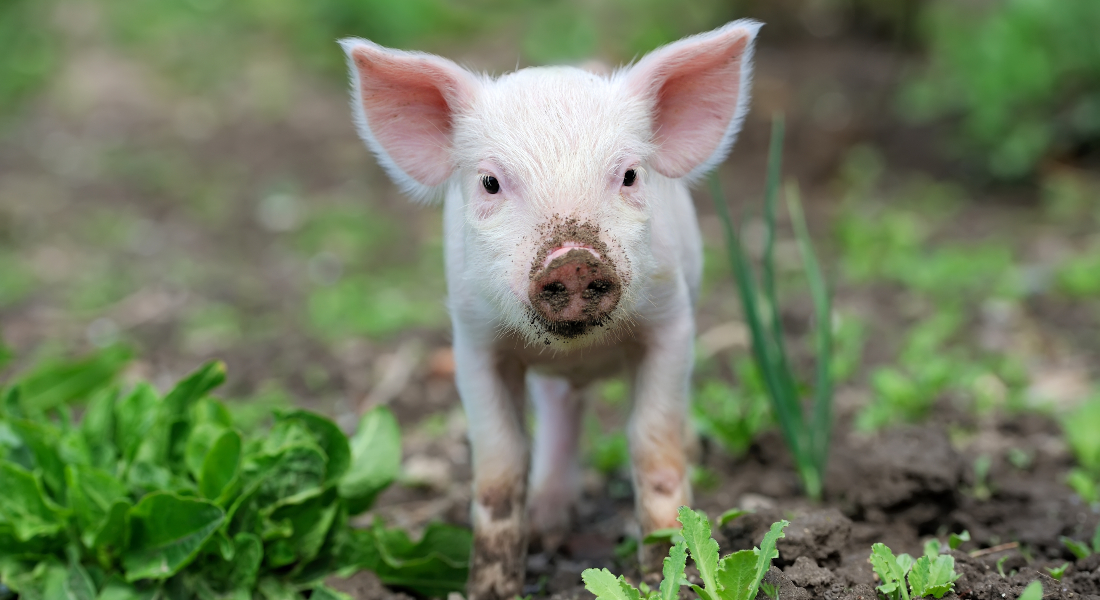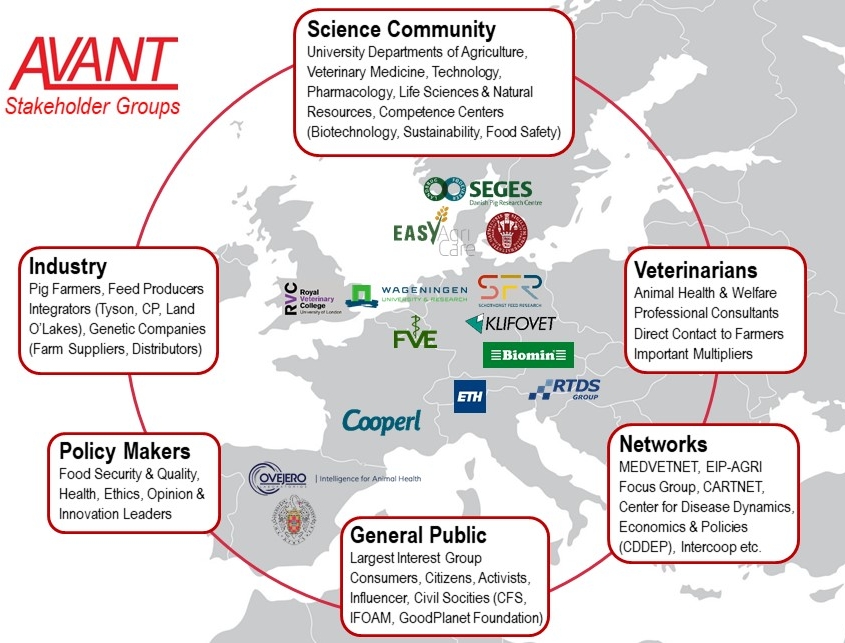



European project to help limit antibiotic use in pig production
New European research project AVANT aims to bring new antibiotic-limiting technologies and products closer to the market.
Antibiotics are an effective way to fight off bacteria in both humans and animals. However, recently there has been increasing concern raised about the use of antibiotics in pig production. This is due to the emergence of antibiotic resistance in pigs and possible transmission to people who depend on antibiotics to treat severe bacterial infections.
Now, a European Research Consortium is trying to prevent or limit the use of antibiotics in pig production by finding alternatives to the drugs colistin and zinc oxide, which have been restricted or banned in the EU. The consortium has received 6 million euro from EU Horizon 2020 and is led by the University of Copenhagen.
“By bringing alternatives to antimicrobials closer to the market, the AVANT project can have a tremendous impact on animal health, food safety and farm sustainability in developing unconventional veterinary products,” said Luca Guardabassi, professor at the Department for Veterinary and Animal Sciences and coordinator of AVANT.
Why do we need alternatives to antibiotics
Zinc oxide and colistin have limited alternatives for treatment of post-weaning diarrhea in pigs. The antibiotic currently used for this indication in Danish pig production, neomycin, should be used with caution in animals according to the recent EU classification of critically important antibiotics.
In principle, any antibiotic implies some degree of risk associated to development of antibiotic resistance, especially when used in large amounts for controlling a common disease like post-weaning diarrhea. This is why the AVANT research consortium is aiming to find alternatives to antibiotics for prevention and control of this economically important disease in pig production.
As shown by the European Innovation Partnership for Agricultural Productivity and Sustainability (EIP-AGRI, launched by the European Commission in 2013) several preventive non-medication actions reducing the risk of infectious diseases transmission besides infectious factors have been identified. The three main areas, where practical solutions already exist or may be further developed to strategically reduce antibiotic usage in EU pig farming are:
- General enhancement of animal health and welfare by improved biosecurity, husbandry management, facility design, and training of personnel, veterinarians and other advisers
- Feed supplements and techniques including vaccination, breeding and feeding programmes promoting pig health (certain feed structure & viscosity can reduce the risk of e.g. Salmonella infections)
- Balanced and sustainable use of antibiotics by changing human behaviour, habits and attitude through improved information dissemination, education and training
Expert focus group has proposed several ways to promote and implement best practices for each cluster, i.e. sow and piglet management, biosecurity, housing conditions and human attitudes and behaviour determinants, to contribute to cost-effective practical solutions that leads to the reduction of antibiotics use. The group also proposed the use of interactive tools for farmers and farm advisors for improved husbandry management, using standardised risk-based analyses.
Since improvements of animal health and welfare also results from social and human sciences, further education and information, advisory task forces, bench-marking systems (data collection and transfer), consulting boards and special training schemes for farmers and veterinarians are recommended. This includes also economic evaluations and required demonstrations of research results in field testing. The EIP-AGRI focus group concluded:
“A multidisciplinary research approach should be adopted to develop solutions and strategies to prevent and manage multi-factorial respiratory and enteric diseases. Communication strategies and coaching should also be implemented across Europe […] planning an EU-wide guidance and demonstration of good biosecurity and health management practices”
Here is where the AVANT project sets in, following recommendations for future projects with concrete action plans to catalyse innovation. The main innovation development activities focus on these treatment and prevention targets as alternatives for antibiotics:
- Innovative synbiotic feed additives (BIOMIN)
- Faecal transplantation and in-farm protocols to treat certain enteric infections in pigs (University of Copenhagen)
- Anti-ETEC phages for the targeted host species specific intervention bringing ETEC-targeting phage products close to the market (Easy Agricare)
- Advanced Anti-ETEC polymers regarding optimised dosage requirements, safety and efficacy as well as improved mode of action (Royal Veterinary Collage)
- New oral & injectable immunostimulants will signify a major breakthrough in immunomodulation approaches (Ovejero Laboratories)
- Alternative feeding strategies modulating the pig gut microbiome to prevent post-weaning diarrhoea (Schothorst Feed Research, Wageningen Research)
The three most promising interventions will be selected for farm trials to assess their clinical efficacy.
Moreover, the effects of these interventions on the reduction of antimicrobial use will be measured at farm level and predicted on a larger scale, at the EU level, by mathematical modelling.
The project has 14 partners from industry, research and associations from 9 different EU countries and it will run until December 2024. The project will work together in a multi-actor approach to reach the afore mentioned goals within the next five years, with an overall budget of € 6,5 Mio (EU Contribution: € 5,99 Mio).










